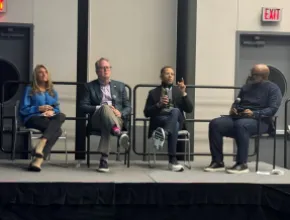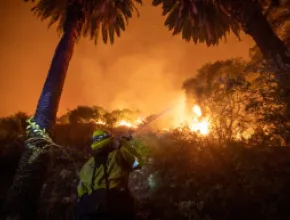President Trump signed a new version of his executive order on Monday, March 6, this time blocking citizens of six predominantly Muslim countries—Iran, Libya, Somalia, Sudan, Syria and Yemen—from entering the U.S.
The executive order, commonly referred to as President Trump’s travel ban, was updated in a few key areas to better hold up under federal scrutiny. Most notably, the updated ban is not immediate and instead goes into effect on March 16, Iraq was removed from the list of countries and current visa holders are not affected.
Once implemented, the ban will last for 90 days for travelers and 120 days for refugees.
The New York Times put together an analysis of the travel ban and more details of what else is new that is worth a look for those in the meetings and events industry. While the U.S. (and the meetings industry) does not routinely do business with the countries mentioned in the ban, it’s influence can still be felt elsewhere.
Many see the travel ban as having an impact on the overall perception of the U.S. and who decides to travel to and from the country, though the exact repercussions of the travel ban have yet to be determined.
So far, the hospitality industry has greeted the updated travel ban with a somewhat muted response, but it seems that many are keeping a close and cautious eye on the travel ban and its overall impact.
The Meetings Mean Business Coalition released the following statement on Tuesday, March 7.
“Meetings Mean Business joins the American travel community in supporting efforts to bolster national security. We recognize the substantially more cautious and deliberate introduction of the revised executive order on travel and immigration, however, several of the industry’s initial concerns remain unaddressed.
"A Meetings Mean Business survey, conducted after the initial executive order, found that [the majority of industry professionals] were concerned about reputational harm to the U.S. Our industry is centered on bringing people together, fostering relationships, driving positive outcomes and supporting communities where meetings and events are held.
"We reiterate our belief that striking the right balance between enhanced security and travel facilitation is of the utmost importance. We also continue to urge that the security reviews prescribed ... be concluded as quickly as possible.”
And here is an excerpt of an official statement from U.S. Travel President and CEO Roger Dow.
"The American travel community supports efforts to bolster national security, and the Trump administration deserves some credit for the substantially more cautious and deliberate introduction of the revised executive order … Cabinet officials were on the right track with public statements welcoming lawful visa holders into the U.S. Unfortunately, it doesn’t appear that the administration fully seized the opportunity to differentiate between the potential security risks targeted by the order and the legitimate business and leisure visitors from abroad who support 15.1 million [jobs]."
Travel industry website, Skift, compiled statements from these and other associations here.
In a recent informal survey sent out to Meetings Today Friday With Joan newsletter subscribers in February 2017 and promoted via social media outlets, 60.2% of respondents felt the original travel ban would negatively affect our industry. While 27.7% felt the travel ban would not directly impact our industry in the long-run.
12% of respondents were uncertain on the overall industry impact of the original travel ban.
Meanwhile 42.2% of respondents felt that their meetings would not be directly impacted by the previous travel ban and 31.3% felt that their meetings would be directly impacted. 26.5% of respondents were unsure if their events would be directly impacted by the travel ban in any way. 83 people responded to the survey.





